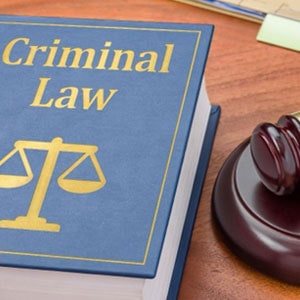
While no one hopes to be arrested, it pays to be prepared for the eventuality. This article will help you understand your fundamental rights, options, and the procedures you will face when arrested for a crime in California, including:
- The most common charges you are likely to face in Southern California.
- When your Miranda rights come into play, and what to expect within the first 72 hours of arrest.
- How the bail bond system works and why you need an attorney as early as possible.
What Are The Most Common Criminal Charges In Southern California?
Crimes come in all flavors, sizes, and, most importantly, severities. However, while crimes range from petty theft misdemeanors to rare and brutal first-degree murder felonies, some charges are a lot more likely to be brought against everyday Californians.
The most common crimes we tend to handle in our practice include DUI and domestic violence.
DUI charges are especially common on LA roadways where a simple traffic stop can quickly turn into an arrest. Domestic violence charges, while less common, are more frequent than people would think, as the police usually prefer to embark and arrest someone when responding to a disturbance or call rather than risk it escalating, even if the “victim” has no desire to press charges.
Regardless of what type of charge you are or will face, it is imperative to know what to expect when under arrest and what your rights are.
When Arrested And Charged In LA County, What Happens Within The First 24 To 72 Hours?
The stress and surprise when you are under arrest can be your worst enemy; far too many people get themselves into trouble by saying or doing something they should not when faced with this unfamiliar and highly stressful situation. You can help to not worsen your situation by knowing what to expect.
- First, you will be taken into custody. If you are going to be detained, the police will take you from the local agency to the county jail, where bail will be set (or be denied, depending on the crime and circumstances).
- Second, you will be processed and kept in custody; if you do not bail out, you will be brought to a judge within 48 to 72 hours of your arrest and then asked to enter a plea of guilty or not guilty.
- Third, once you plead (typically not guilty), then bail is addressed once again, and future court dates are set.
These 24 to 72 hours are likely to be some of the most soul-crushing and stressful moments of your life. Do not go through them alone. Call a defense attorney who will help you through each step.
A defense attorney will also make sure your rights are protected, because law enforcement can be very cagey about what rights you have access to and when, despite what TV-famous Miranda warnings would have you believe.
How And When Do Miranda Rights Come Into Play When Interacting With Police?
Miranda rights are the often quoted rights “to remain silent” and to “have a lawyer” that are mandatory in every cop show and legal drama. In reality, however, the police are a lot more subtle and often less transparent with what rights you have access to, which will depend on the circumstances you are in.
Sometimes, law enforcement likes to couch questioning in terms of doing a welfare check, such as asking questions to see if you can continue driving. In such DUI cases, Miranda does not apply. The cop can ask you if you have been drinking and other questions where your answers might be incriminating. Nevertheless, case law says that Miranda does not apply.
In general, Miranda will apply to any potentially incriminating questions, provided you are in custody. It is important to understand that custody is a legal definition and not just any time you feel like you are not free to leave. For example, if you are surrounded by two or three cops and you obviously do not feel free to leave, it is debatable if you are in custody and Miranda rights apply.
The best policy is usually to ask, very politely, if you are free to go, and if not, to insist, calmly and politely, that the police arrest you or let you contact a lawyer before answering any incriminating questions.
Once you are arrested, the next stage is usually a bond or bail hearing.
Are Most Charges Bondable Offenses? How Does Bond Or Bail Work In Los Angeles County?
Los Angeles County is somewhat unique in southern California in that the jails are incredibly overcrowded. Despite this, laws have been passed saying that for certain offenses where the person should be going to prison, they can stay in county jail. That increased the population further.
With that in mind, the courts tend to be generous with bail in order to avoid further crowding. Some have even gone to zero cash bail systems where people can be bonded out or can be released on recognizance without posting bail.
Except for no cash bail cases, most offenses are bailable, though sometimes the amount of money demanded is very, very high. Usually, the amount demanded will depend on the offense and other case or circumstance-specific factors.
If you can use a bail bondsman, you will only have to put up a percentage of the bond required. You will pay that bail bondsman anywhere from 5% to 10%, and they will post the bond for you. For example, a client had a hundred thousand dollars in bail posted after paying just $6,000 to the bail bondsman.
After posting bail, you will then be released, but not without strict requirements about what comes next.
Once Out Of Jail, What Comes Next?
When you are released from jail, you are supposed to receive paperwork telling you what your next court date is. Sometimes that doesn’t happen.
Fortunately, in Los Angeles County, the computer system is pretty good, so you can generally find out what the date is by checking online or by contacting the jail or the clerk’s office where the case should be.
Why Is It Important To Have A Criminal Defense Attorney Involved Early?
A lot of criminal law, and defense, is about timing. The earlier you get an attorney on board, the more they can do for you and your case. In the best circumstances, depending on the case, they might even be able to get the charges dropped against you entirely before the case is filed by contacting the DA directly.
While it is hardly a sure thing, you do not want to miss any opportunity to get the case dismissed or resolved early.
Sometimes people think they do not need an attorney until they go to trial. But if you wait that long, you will have wasted all the precious time between the arraignment and the trial. Time in which your attorney could have been filing motions, talking to the prosecutor about resolving the case, working on evidence discovery, and other vital steps.
You can even contact one before knowing what the police are interested in. Your attorney can be a kind of shield by going to speak with the cops for you if they have asked you to come in. Either they are going to find out what the cop wants, or the cop is going to say “I only want to talk to your client” in which case your lawyer will insist they share the topic with them first before asking you anything.
Sometimes, that shuts down the investigation entirely. So it’s important to get an attorney as soon as you think you might have a criminal legal problem, especially when the consequences of a conviction are so damaging.
Will I Lose My Professional License If Convicted Of A Misdemeanor Or Felony In California?
While shows always talk about fines and jail or prison time, some of the most damaging consequences of criminal convictions are on the personal, or professional, lives of the accused.
How exactly a conviction will affect your professional license depends on the license in question and the conviction.
- If you are convicted of any violent crime, you are going to lose almost any license.
- If you are convicted of a felony, you are probably going to lose any license.
- If you are convicted of a drug or alcohol-related crime, especially if it is related to your work, for example, a nurse with a drug problem is going to face license difficulties.
- If the crime is in no way related to your work, then you might not have a problem with your license.
Criminal convictions can also impact your attempts to get licenses in the future, which could negatively affect your career before you even have one.
Should I Plead Guilty If I Think I Won’t Win My Case? Can I Represent Myself If I Plan To Do So?
Given the consequences of a conviction, it is almost never a good idea just to plead guilty, especially if you have not gone over the case and discussed it with an experienced criminal defense attorney.
There is almost always something that can be done in virtually every case. At the very least, a thorough investigation could enable your attorney to resolve it for something less than what a judge would give you should be made.
Unfortunately, without an attorney, you might never even be aware of such options. This is why it is vital, when dealing with an arrest, no matter how dire you feel the circumstances are, to call a lawyer as soon as possible. For more information on Criminal Cases Handled In California, an initial consultation is your next best step.

Attorney Matthew Cargal is a highly experienced criminal defense attorney helping anyone accused of DUI, battery, domestic violence, and other crimes throughout LA County and Southern California. A recognized expert on DUI defense law, with hundreds of cases and trials under his belt, Matthew Cargal hopes to help everyday Americans understand and defend their rights by sharing insights from his considerable experience. Connect with The Law Offices Of Matthew Cargal to stay up to date on the latest developments in criminal defense law so that you, too, can benefit from his insights into California criminal law. Call Now At
(626) 648-5004.